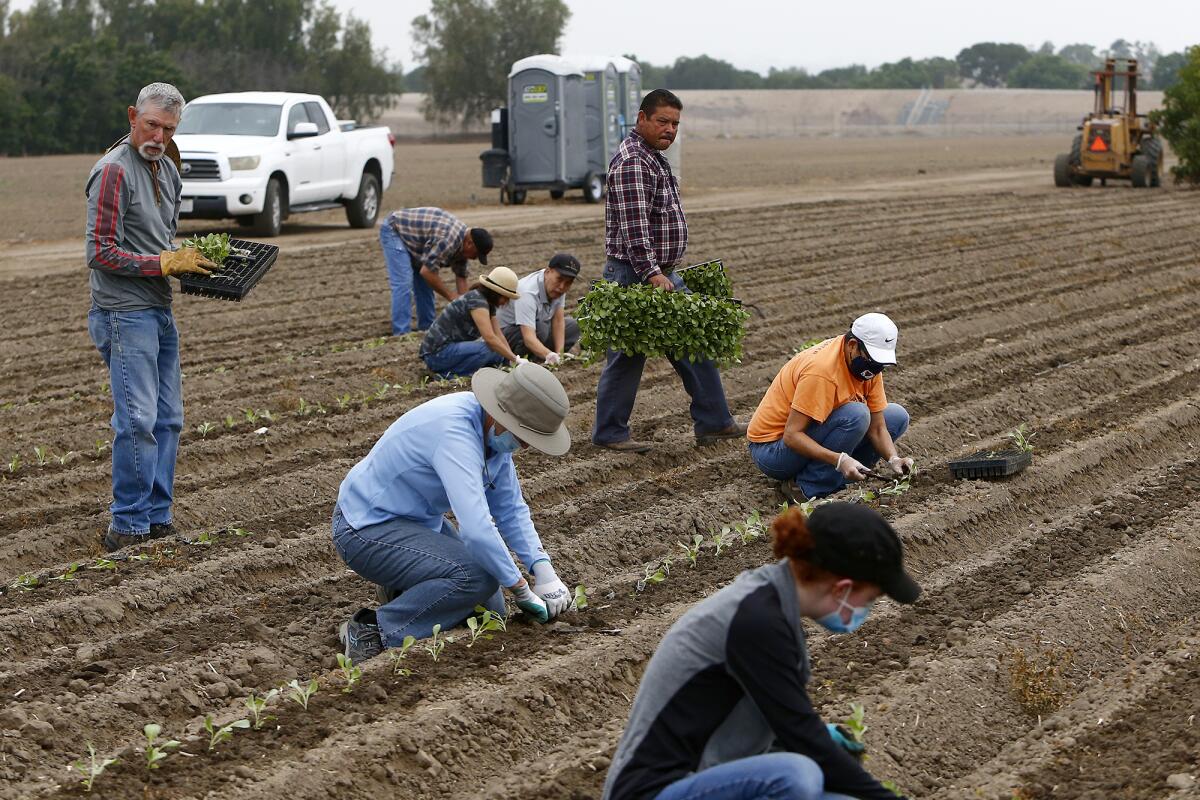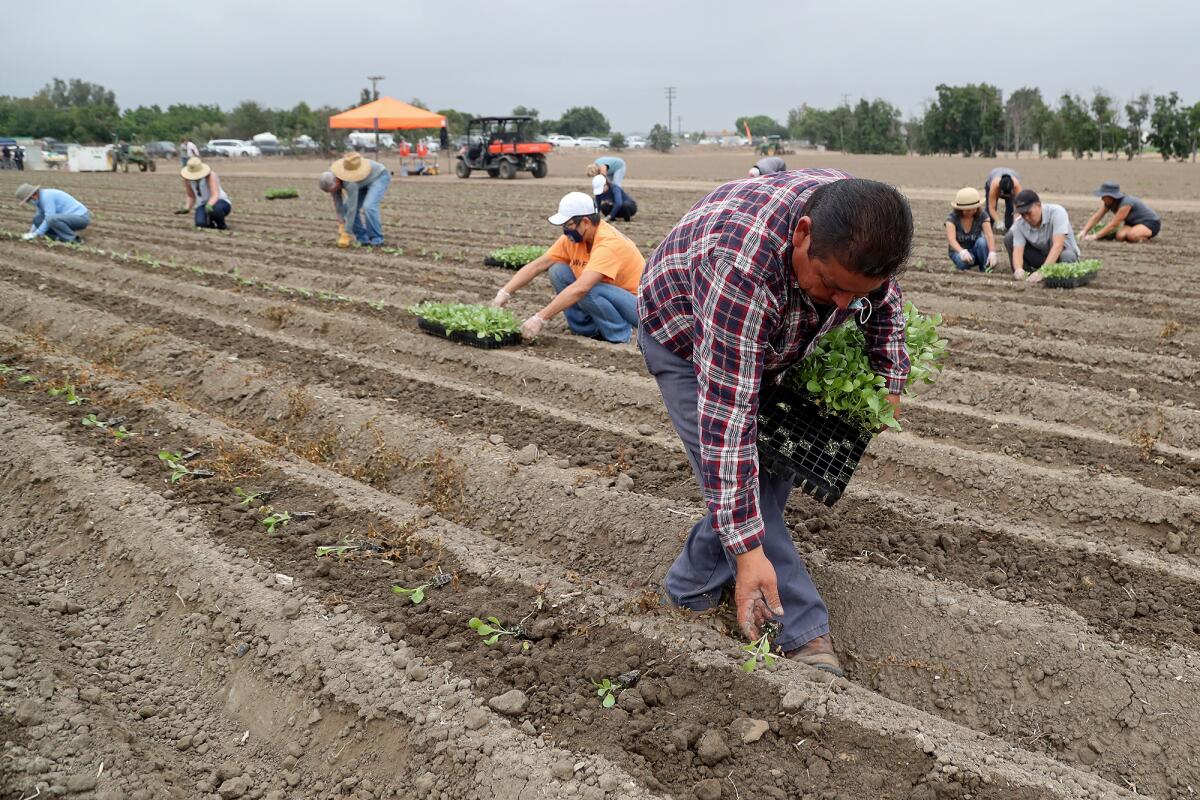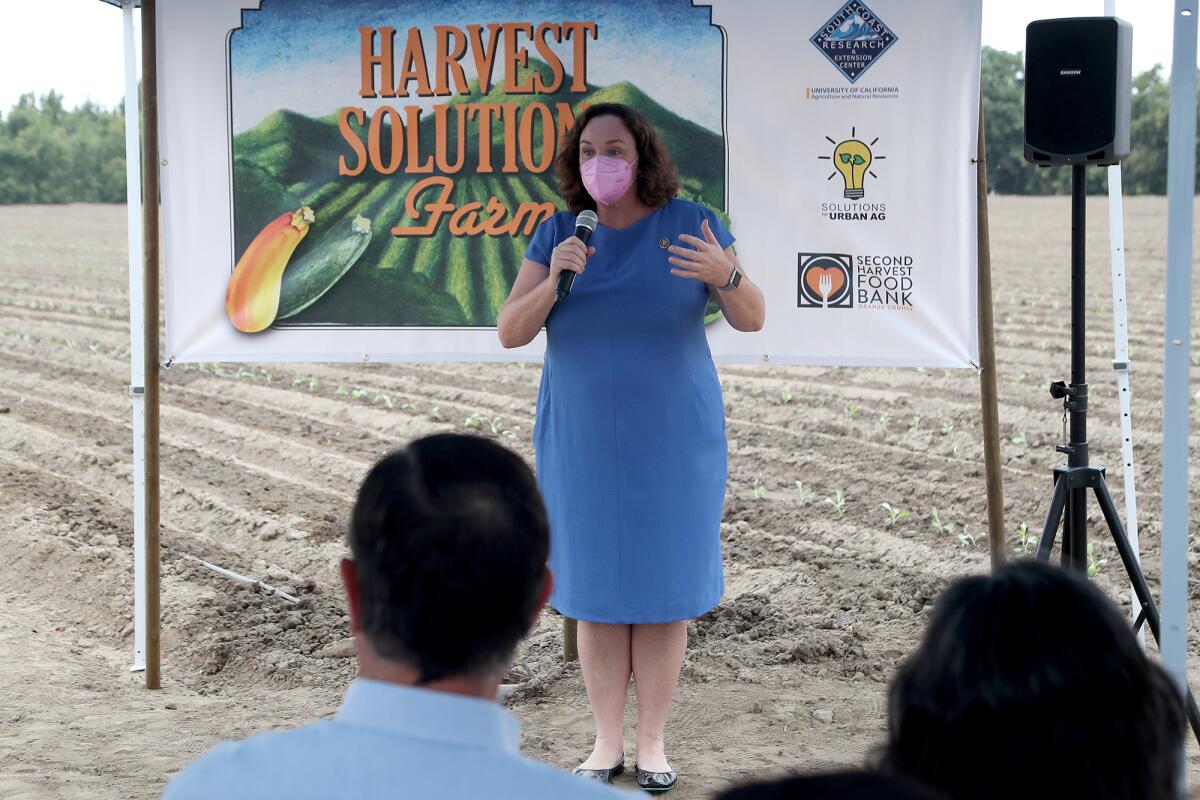As the pandemic worsens food insecurity, new farm will help feed Orange County

Second Harvest Food Bank broke ground this week on a 45-acre farm in Irvine in an effort to combat a spiraling food crisis in Orange County.
Due to the economic consequences of the pandemic, the food bank is now serving almost twice as many people as before. But Second Harvest — one of the county’s two major food banks — isn’t just hoping to increase its food stores, it’s also aiming to provide nutritional food to the underserved populations in the county.
During a press conference on Tuesday morning, Second Harvest board Chairman Dave Coffaro said that when he first started working at Second Harvest three decades ago, they weren’t concerned with getting people nutritional food. Rather, they were just trying to get food to people who needed it.
The food bank started focusing on alleviating nutritional insecurity in the county last year, providing consistent access to fresh protein, produce and dairy, as opposed to relying on donated foods.
Claudia Keller, Second Harvest chief mission officer, said the food bank’s goal is to have produce account for at least 50% of its distribution. She said the yield will be about 140,000 pounds of produce a month from the farm, though it has the capacity for 600,000 pounds of food a month.
“Our commitment is to meet food insecurity, but really going forward to tackle nutritional insecurity,” Keller said. “We want to make sure that the people that need the most help are getting the good food that all of us can get at a supermarket. We want to make sure that they’re getting it with dignity and on a consistent basis.”

This is Second Harvest’s first substantial farm, though it does have a little farm at its facility that is less than 1 acre. Prior to the 45-acre farm, Second Harvest’s bank was filled with food that it either purchased or received from donations.
The farm is located at the University of California South Coast Research and Extension Center in Irvine. Second Harvest is partnering with the UC system for the first time.
Once the food is harvested, it will go to the food bank’s facility, which is about half a mile from the farm. Then the food will get distributed through Second Harvest’s pantry network, which serves families, seniors, homeless people and others who have been financially impacted by the pandemic throughout the county.
The crops are estimated to be ready for harvest by Nov. 18, right in time for Thanksgiving. The farm will include zucchini, squash, summer corn and other crops.

Several political leaders spoke at the news conference, including county Supervisor Don Wagner, Irvine Mayor Farrah Khan and Rep. Katie Porter (D-Irvine). While they addressed a small crowd, volunteers were out in the field planting about 26,000 cabbages.
“Food insecurity has gotten worse during the pandemic,” Porter said. “But it was a problem before, and it’s sadly going to be a problem after. Today we’re taking an important step to addressing not just the amount of food but the type and the quality of food, to investing in nutrition and investing in people in our community.”
Second Harvest is responsible for recruiting most of the volunteers for the farm. The food bank also partnered with Solutions for Urban Agriculture and the University Extension Center for volunteers.
In addition to addressing nutritional needs, the farm allows Second Harvest to take control of its supply chain, fortifying it against the inflated food prices and supply chain issues caused by the pandemic.
Since the food bank previously purchased food from the Central Valley, Second Harvest had to work around disruptions in the supply chain.
“It is a new era for us in food banking here in the county,” Keller said. “We are taking some control of our own supply chain. We are shortening the time from farm-to-table for our most vulnerable citizens.”
All the latest on Orange County from Orange County.
Get our free TimesOC newsletter.
You may occasionally receive promotional content from the Daily Pilot.




